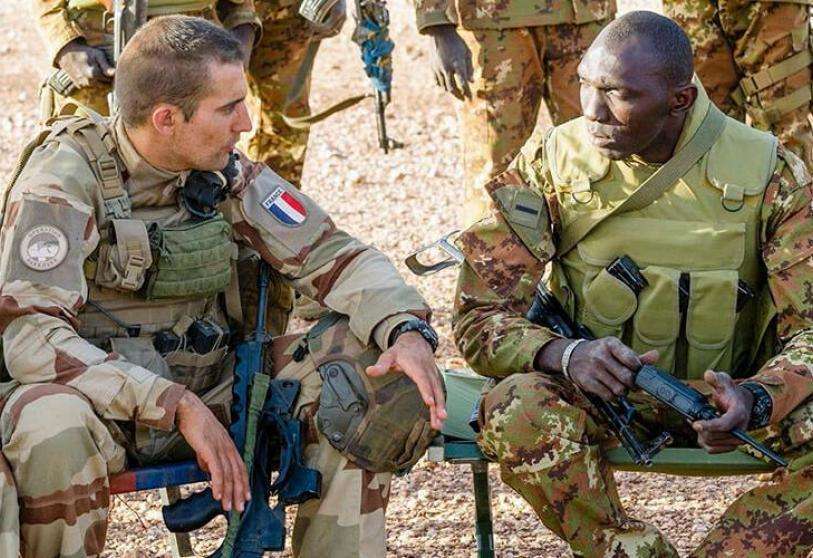Macron threatens to withdraw French soldiers from Mali

The case of Mali exemplifies the risks and challenges posed by the integration of armed groups in the Sahel. A country of 19 million inhabitants, caught in a maelstrom of jihadist and inter-communal violence that has left thousands dead and hundreds displaced, and with a transition process completely disallowed by the military uprising of the coup leaders, disconnected from the new government. Last week they deposed the transitional president, Bah Ndaw, and Prime Minister Moctar Ouané.
Mali's strongman, Colonel Assimi Goïta, assumed power, later endorsed by the Constitutional Court, as the new president of the Republic. Thus, in its efforts to legalise the new authorities, the Court relied on Ndaw's resignation, on the grounds of a power vacuum that needed to be filled immediately, and according to the laws of the Transitional Charter in force in Mali during this transitional period, the person entitled to replace a president is, first and foremost, his vice-president, in this case Colonel Assimi Goïta.

This move pits them against ECOWAS members. At an extraordinary regional summit, the Community of West African States (ECOWAS) welcomed the procedure of its designation suspending Mali from its common institutions and called on Mali to respect its commitment to a transition due to end in February 2022, with a presidential election to hand over power to civilians and integrate representatives of different political parties and civil society.
ECOWAS countries had ordered the closure of land borders with Mali following last year's coup, which led to a 30 per cent drop in imports from the country, before sanctions were lifted in October.
ECOWAS is the institution that has piloted the transition process from outside Mali over the past months, in concert with the coup leaders, but with the new military uprising it has been completely disempowered.
As West African heads of state meet in Ghana to discuss recent political developments in Mali, Emmanuel Macron raises the tone of the new power in Bamako. In an interview with the Journal du dimanche (JDD), the President of the Republic says France will withdraw its troops if Mali goes "in the direction" of radical Islamism, following a second coup in the country in nine months.

If mediation efforts fail, "we will adopt sanctions against all those who impede the development of the transition process", warned French Foreign Minister Jean-Yves Le Drian. The United States has also announced the suspension of its aid to the Malian forces and intends to "consider specific measures" against those who disrupt the transition. This pressure has so far had no effect on the coup plotters.
Such developments have reignited the debate on the logic of continuing in Mali. France, with some 5,100 troops in Operation Barkhane, ensuring regional 'stability' and the security of Niger's uranium mines, important for French industry, has been supporting Mali, which since 2012 has been facing a jihadist push from the north that has plunged the country into a security crisis before spreading to the centre of the country. But Paris, like the EU, has denounced an 'unacceptable coup d'état'.
Politically, Operation Barkhane may influence the future of the Elysée, especially in terms of its impact on improving France's security and the debate over the usefulness of the mission for a military involved in many foreign theatres of operations and in citizen security, which represents a considerable drain on the national defence budget.
Despite this operation, the mission has not succeeded in eradicating the scourge of terrorism in the area. Today, terrorist groups are scattered across the Sahara desert and divided into various factions that combine to fight against international missions and each other, hindering stability in the Sahel.

Over the years, the French operation has encountered a socio-political reality that makes its presence difficult in the eyes of local societies. The French presence legitimises corrupt institutions and the abuse of power by state structures. The protests against Barkhane by the Malian people, which later led to the anti-government revolts that ended in the coup d'état of August last year, exemplify this malaise.
Barkhane's future is complicated by mounting military losses and public fatigue with the conflict, which may influence the future political landscape, with a presidential election in 2022 as the main event.
It remains to be seen how the new president and the procedure for his appointment will be received by the Malian people, but above all by the West African Community of States, in the face of growing political and social protest in a country that has been mired in a deep crisis for years and under pressure from the international community.









